The New International Greek Testament Commentary: The Gospel of Matthew
(These are resources that are being developed. There is no release date. Pricing is subject to change.)
Having devoted the past ten years of his life to research for this major new work, John Nolland gives us a commentary on the Gospel of Matthew that engages with a notable range of Matthean scholarship and offers fresh interpretations of the dominant Gospel in the history of the church.
Without neglecting the Gospel’s sources or historical background, Nolland places his central focus on the content and method of Matthew’s story. His work explores Matthew’s narrative technique and the inner logic of the unfolding text, giving full weight to the Jewish character of the book and its differences from Mark’s presentation of parallel material. While finding it unlikely that the apostle Matthew himself composed the book, Nolland does argue that Matthew’s Gospel reflects the historical ministry of Jesus with considerable accuracy, and he brings to the table new evidence for an early date of composition.
Including accurate translations based on the latest Greek text, detailed verse-by-verse comments, thorough bibliographies for each section, and an array of insightful critical approaches, Nolland’s Gospel of Matthew will stimulate students, preachers, and scholars seeking to understand more fully Matthew’s presentation of the gospel narrative.
The New International Greek Testament Commentary: The Epistle to the Hebrews
(These are resources that are being developed. There is no release date. Pricing is subject to change.)
The New International Greek Testament Commentary: The Epistles to the Thessalonians
(These are resources that are being developed. There is no release date. Pricing is subject to change.)
The letters of Paul to the newly founded Christian community at Thessalonica hold a special place within the Christian tradition as possibly the earliest extant Christian writings. They are also of special interest not only for their theological value but for their sociological context. Among the communities established by Paul, the church at Thessalonica appears to have been the only one to have suffered serious external oppression. These two important epistles, then, speak uniquely to contemporary Christians living in a society often ideologically, if not politically, opposed to Christian faith.
In this innovative commentary Charles A. Wanamaker incorporates what may be called a social science approach to the study of 1 and 2 Thessalonians, taking into full account the social context that gave rise to Paul’s correspondence. While Wanamaker in no way ignores traditional historical-critical, linguistic, literary, and theological approaches to writing a commentary — in fact, at several points he makes a significant contribution to the questions raised by traditional exegesis — at the same time he goes beyond previous commentaries on the Thessalonian correspondence by taking seriously the social dimensions both of Christianity at Thessalonica and of the texts of 1 and 2 Thessalonians themselves. In blending traditional exegetical methods with this newer approach, Wanamaker seeks to understand Pauline Christianity at Thessalonica as a socio-religious movement in the first-century Greco-Roman world and attempts to grasp the social character and functions of Paul’s letters within this context.
The New International Greek Testament Commentary: The Book of Revelation
(These are resources that are being developed. There is no release date. Pricing is subject to change.)
The New International Greek Testament Commentary: The Epistle of James
(These are resources that are being developed. There is no release date. Pricing is subject to change.)
Peter David’s study on the Epistle of James is a contribution to The New International Greek Testament Commentary, a series based on the UBS Greek New Testament, which attempts to provide thorough exegesis of the text that is sensitive to theological themes as well as to the details of the historical, linguistic, and textual context.
The New International Greek Testament Commentary: The Gospel of Mark
(These are resources that are being developed. There is no release date. Pricing is subject to change.)
Drawing on many years of Marcan studies, world-class scholar R. T. France has produced an exegetical commentary on the Greek text of Mark that does what the best of recent Greek commentaries have done but in France’s own inimitable, reader-friendly way.
This work is a commentary on Mark itself, not a commentary on commentaries of Mark. It deals immediately and directly with matters that France himself regards as important. Working from his own translation of the Greek text and culling from helpful research into the world of first-century Palestine, France provides an extensive introduction to Mark’s Gospel, followed by insightful section and verse commentary.
France sees the structure of Mark’s Gospel as an effective “drama in three acts.” Act 1 takes up Jesus’ public ministry in Galilee. Act 2 covers Jesus’ journey to Jerusalem with his disciples. Act 3 focuses on Jesus’ public ministry in Jerusalem, including his confrontation with the Jewish leaders, his explanatory discourse on the future, and his passion, death, and resurrection. France carefully unpacks for modern readers the two central themes of this powerful narrative of Jesus’ life — the nature of Christ and the role of discipleship.
Supported by careful argumentation and impressive in its sensitivity to Mark’s structure, context, and use of the Old Testament, France’s study of the second Gospel is without peer.
The New International Greek Testament Commentary: The Pastoral Epistles
(These are resources that are being developed. There is no release date. Pricing is subject to change.)
This is a thorough, full- scale English commentary on the Greek text of 1 and 2 Timothy and Titus. While author George W. Knight gives careful attention to the comments of previous interpreters of the text, both ancient and modern, his emphasis is on exegesis of the Greek text itself and on the flow of the argument in each of these three epistles.
Besides providing a detailed look at the meanings and interrelationships of the Greek words as they appear in each context, Knight’s commentary includes an introduction that treats at length the question of authorship (he argues for Pauline authorship and proposes, on the basis of stylistic features, that Luke might have been the amanuensis for the Pastoral Epistles), the historical background of these letters, and the personalities and circumstances of the recipients.
Knight also provides two special excursuses: the first gathers together the information in the Pastorals and elsewhere in the New Testament on early church offices and leaders; the other excursus examines the motivations for conduct in Titus 2:1-10 with a view to their applicability to present-day situations.
The New International Greek Testament Commentary: The Epistle to the Galatians
(These are resources that are being developed. There is no release date. Pricing is subject to change.)
The New International Greek Testament Commentary: The Epistles to the Colossians and to Philemon
(These are resources that are being developed. There is no release date. Pricing is subject to change.)
Series: The New International Greek Testament Commentary (NIGTC)
Paul’s Epistle to the Colossians merits detailed study for at least two reasons. First, it provides an unexpectedly interesting window into the character of Christianity in Asia Minor in the second half of the first century. With the information it gives about the religious tensions within which emergent Christianity was caught up, not least those between Christianity and diaspora Judaism, we begin to gain more insight into the influences and factors that shaped the transition from apostolic to subapostolic Christianity in the region. Second, Colossians represents a crucial stage in the development of Pauline theology itself. Whether it was written at the end of Paul’s life or soon after his death, it indicates how Pauline theology retained its own vital character and did not die with Paul.
In this volume in the celebrated New International Greek Testament Commentary, James D. G. Dunn, author of numerous well-received works on the historical origin and theological interpretation of the New Testament, provides detailed expositions of the text of Paul’s letters to the Colossians and to Philemon.
Dunn examines each of these letters within the context of the Jewish and Hellenistic cultures in the first century, and discusses the place of Colossians and Philemon in the relationship between the Pauline mission and the early churches that received these letters. Particular stress is also placed on the role of faith in Jesus Christ within and over against Judaism and on the counsel of these two important letters with regard to the shaping of human relationships in the community of faith.
The New International Greek Testament Commentary: The Second Epistle to the Corinthians
(These are resources that are being developed. There is no release date. Pricing is subject to change.)
Series: The New International Greek Testament Commentary (NIGTC)
The reputation of the NIGTC series is so outstanding that the appearance of each new volume is noteworthy. This book on 2 Corinthians is no exception. Master New Testament exegete Murray J. Harris has produced a superb commentary that analyzes the Greek text verse by verse against the backdrop of Paul’s tumultuous relations with his converts at Corinth.
Believing that Scripture cannot be understood theologically unless it has first been understood grammatically, Harris provides a careful, thoroughgoing reading of the text of 2 Corinthians. He gives special attention to matters of translation, making regular references not only to the standard modern English translations but also to influential older versions such as The Twentieth Century New Testament and those by Weymouth, Moffatt, and Goodspeed. His close attention to matters of textual criticism and grammar leads to discussions of the theology of 2 Corinthians that show the relevance of Paul’s teaching to Christian living and church ministry.
Other notable features of the book include a comprehensive introduction in which all the relevant literary and historical issues are discussed, an expanded paraphrase of the letter that conveniently shows Harris’s decisions on exegetical issues and indicates the flow of Paul’s argument, a chronology of the relations of Paul, Timothy, and Titus with the Corinthian church, and an excursus on Paul’s “affliction in Asia” (1:8-11) and its influence on his outlook and theology.
The New International Greek Testament Commentary: The First Epistle to the Corinthians
(These are resources that are being developed. There is no release date. Pricing is subject to change.)
Series: The New International Greek Testament Commentary (NIGTC)
This superb volume in the New International Greek Testament Commentary series provides the most detailed, definitive, and distinctive commentary on 1 Corinthians available in English to date.
One of the world’s most respected Christian theologians, Anthony Thiselton here provides in- depth discussion of the language of 1 Corinthians, presents his own careful translation of the Greek, traces the main issues of interpretation from the church fathers to the present, and highlights topics of theological, ethical, and sociohistorical interest today, including ethics and “rights,” marriage, divorce and remarriage, “headship,” gender, prophecy, and many others.
No other commentary on 1 Corinthians embodies the wealth and depth of detail presented in Thiselton’s work, which takes account of nearly all scholarly research on 1 Corinthians and incorporates substantial bibliographies throughout. In his commentary Thiselton indeed addresses virtually every question that thoughtful, serious readers — scholars, students, pastors, teachers — may wish to ask of or about the text of 1 Corinthians. His work truly offers a fresh, comprehensive, and original contribution to our understanding of this major epistle and its contemporary relevance.
The Epistle to the Romans (Verse by Verse Study)
Description:
These studies in Romans were originally used with College Students at Wesleyan University in Middletown, CT and Trinity College in Hartford, CT. They were used for evangelistic purposes (to bring students to a saving knowledge of the Lord Jesus Christ) and they were also used for discipleship purposes (to expose students to the great doctrinal truths presented so clearly in Romans).
theWord Features:
- Verse popups
- Verse Syncs with Bible View
- Fully searchable text
- Footnotes
- Easy navigation of topics via topics tree display.
- Special Text Colors
- Normal: Text
- Hyperlink: Luke 20:21
- Greek: εαυτους
The New Testament: An Expanded Translation (Commentary style)
theWord Features:
- Expanded Translation in Commentary format
- Verse popups
- Fully searchable text
- Footnotes
- Easy navigation of topics via topics tree display.
- Linked to Bible View
- Special Text Colors
- Normal: Text
- Hyperlink: Luke 20:21
- Greek: χρησις
- Transliterated Greek: euaggelion
Wuest Word Studies in the Greek New Testament
These studies and translations of the Greek New Testament are simplified commentaries on the Greek text for the Bible student who is not conversant with the Greek language. The three-volume set includes commentaries on Mark, Romans, Galatians, Ephesians Colossians, Philippians, Hebrews, 1 Timothy, 2 Timothy, Titus, 1 Peter, 2 Peter, 1 John, 2 John, 3 John and Jude; graphic elucidations of selected passages, words, and phrases; and devotional studies on the teachings of Jesus and the apostles.
theWord Features
- Verse popups
- Fully searchable text
- Footnotes
- Easy navigation of topics via topics tree display.
- Special Text Colors
- Normal: Text
- Hyperlink: Luke 20:21
- Page Number: [pg 21>
- Greek: χρησις
- Hebrew: מֶ֫לֶךְ
- Transliterated Greek & Hebrew: euaggelion
theWord Bible Software
theWord is the result of a great, ongoing effort!
If you already have version 3 or later go here for the upgrade.
theWord is used around the world in multiple languages. We pray it will bless your life.
Appreciative users through the years have given to support theWord development. You can do this with a gift as many appreciative users do via theWord Appreciation by doing so you are truly helping provide this high-quality Bible study software, free of charge to everyone.
Want to know what others think of theWord? Read theWord Bible software Guestbook.
Contains:
- Main program
- More than 350 “Free to You” titles also available in “Add Titles” from within theWord
- King James Bible of 1611/1769 with Strong’s numbers
- English Standard Version, 2011 Edition, The Holy Bible (Good News Publishers)
- Holman Christian Standard Bible (Holman Bible Publishers)
- NET Bible (New English Translation), Limited Notes Edition
- Textus Receptus (1550/1894) Greek New Testament with Strongs’ Numbers and parsing information
- Westminster Leningrad Codex Old Testament
- Mickelson’s Enhanced Strong’s Greek and Hebrew Dictionaries
- Robinson’s Morphological Analysis Codes
- Nave’s Topical Bible
- Torrey’s New Topical Textbook
- Hole’s Commentary on the New Testament and selected books of the Old Testament
- The Gospels Compared
- All of Grace (C.H.Spurgeon)
- Bible Doctrines (M.G.Cambron)
- The Complete Sunday School Atlas (S.W.Walter)
- Miller’s Church History (Andrew Miller)
- Pilgrim’s Progress (John Bunyan)
- Rightly Dividing the Word of Truth (C.I.Scofield)
- Treasury of Scripture Knowledge
- Day by Day by Grace (Bob Hoekstra)
Note: Serial Number is not needed – “This product is Free to You”
Kingcomments (Deutsch)
Einleitung
Das Ziel der Kommentare besteht darin, das Lesen der Bibel anzuregen. Die ursprüngliche Webadresse der Kommentare ist www.kingcomments.com. Die Kommentare, die vorhanden sind, sind aus dem Niederländischen ins Deutsche übersetzt worden. Es ist vorgesehen, dass, so Gott will, im Laufe der Zeit die fehlenden Kommentare übersetzt und verfügbar gemacht werden. Die Kommentare sollen das persönlich Bibelstudium unterstützen. Die Bibelzitate, die in den Kommentaren vollständig wiedergegeben sind, sind der Elberfelder Übersetzung 2009 (Edition CSV Hückeswagen) entnommen.
Die Kommentare zu den Büchern Hiob, Psalmen und Jesaja habe ich gemeinsam mit Tony Jonathan geschrieben. Der Kommentar zu Hesekiel ist in enger Zusammenarbeit mit Ron Vellekoop entstanden.
Die Bibel ist das unfehlbare, ewige Wort Gottes. In der Bibel geht es um den Sohn Gottes, der Mensch wurde, um am Kreuz für sündige Menschen zu sterben. Gott hat Ihn von den Toten auferweckt und Er ist jetzt im Himmel. Jeder, der seine Sünden bekennt und an den Sohn und sein Versöhnungswerk am Kreuz glaubt, wird nicht verlorengehen, sondern ewiges Leben empfangen. So jemand ist ein Kind Gottes. Gott unterweist seine Kinder in seinem Wort, wie sie zu seiner Ehre leben können und was sie durch ihre Verbindung mit seinem Sohn geschenkt bekommen haben.
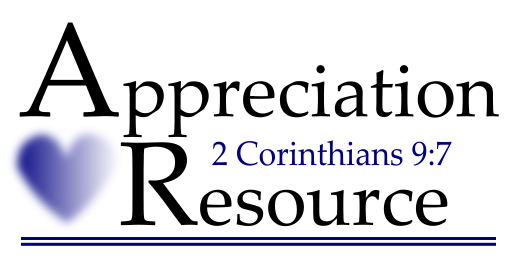
Hier de vertaling:
Dies sind Quellen, die aus Public-Domain-Materialien oder Materialien, für die eine Genehmigung erteilt wurde, konvertiert wurden. Die Wertschätzung gilt uns als WordBooks-Team dafür, dass wir die Zeit, das Geld für die Programmierung der Quellen und mehr investiert haben, um diese Quellen in das Format der Bibel-Software theWord zu konvertieren. Die Quellen sind mit allen verfügbaren Funktionen qualitativ hochwertig und konsistent formatiert und korrekt implementiert, damit sie sich wunderschön in theWord integrieren lassen. Sie können wählen, wie viel Wertschätzung Sie zeigen möchten, bevor Sie diese Quelle zum Einkaufswagen hinzufügen. Beispiel: $0 Keine Wertschätzung, $2, $10, bis zum vollen Betrag von $24.
theWord-Funktionen:
- Vers-Popups
- An Biblische referenzen gebunden
- Vollständig durchsuchbarer Text
- Einfache Navigation von Themen über die Themenbaumanzeige.

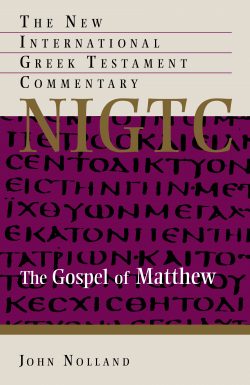
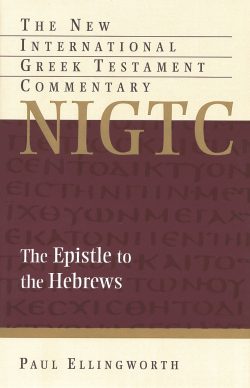
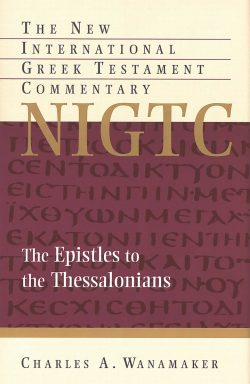
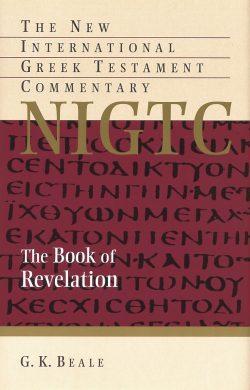
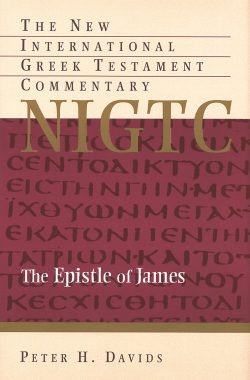
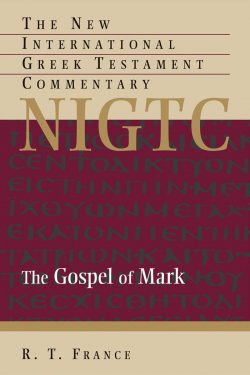
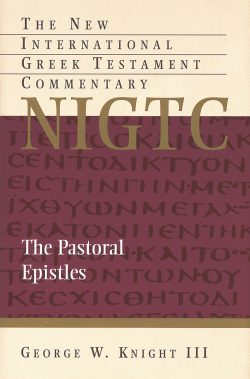
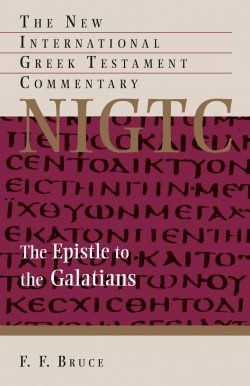
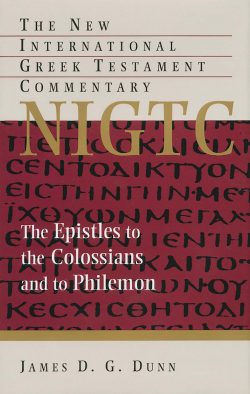
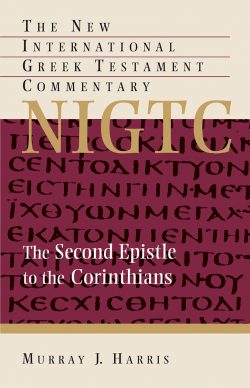
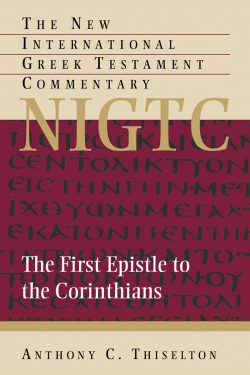
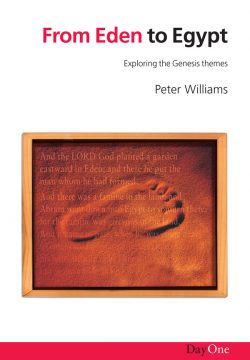
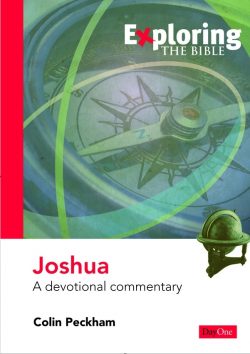
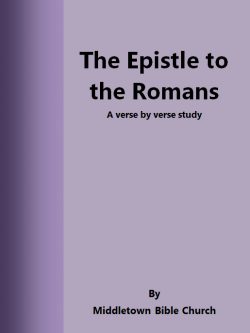
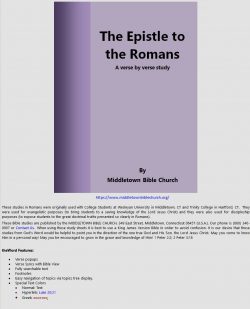
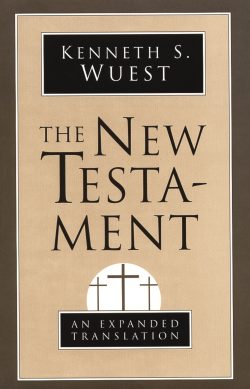
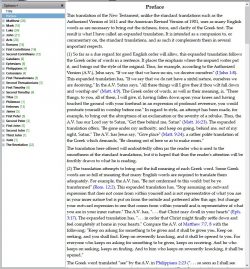
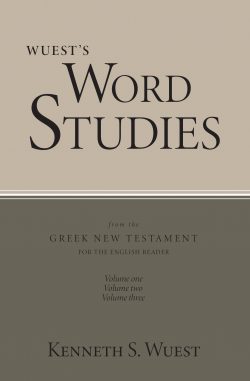
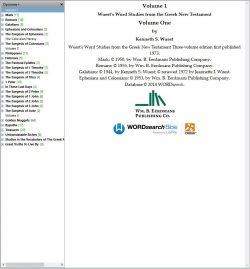
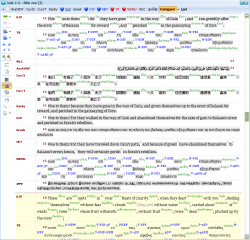
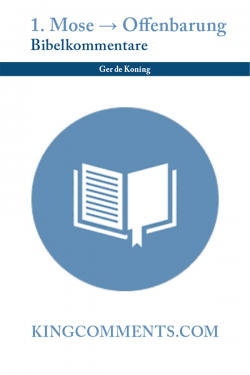
The New International Greek Testament Commentary: The Gospel of Luke
(These are resources that are being developed. There is no release date. Pricing is subject to change.)
Series: The New International Greek Testament Commentary (NIGTC)
The Gospel of Luke was written, says its author, as an historical account of the ministry of Jesus. Not only would it serve as the basis for a sound faith on the part of professing Christians, but it would also claim a place for Christianity in history. Christ’s ministry, as Luke shows, is realized prophecy; it is that time during which God’s promise of salvation was fulfilled. His teachings, healing, and acts of compassion are all part of the good news. In Luke’s Gospel, Christ’s message of salvation is directed to the weak, poor, and needy, with an emphasis on the importance of self-denial and of whole-hearted discipleship. Thus, while Luke is the most conscious historian of the Gospel writers, his history is a vehicle of theological interpretation in which the significance of Jesus is expressed.
In this commentary I. Howard Marshall calls attention to the theological message of Luke the Evangelist. His primary purpose is to exegete the text as it was written by Luke, so that the distinctiveness of Luke’s Gospel may be seen.
Basing his commentary on the third edition of The Greek New Testament, Dr. Marshall also refers to many variant readings which are significant in this study. He provides fairly full information on the meanings of the Greek words used by Luke and shows which words and constructions occur frequently and are therefore characteristic of his style. It is by this meticulous analysis of the Greek that Luke’s theological intentions can be objectively determined.